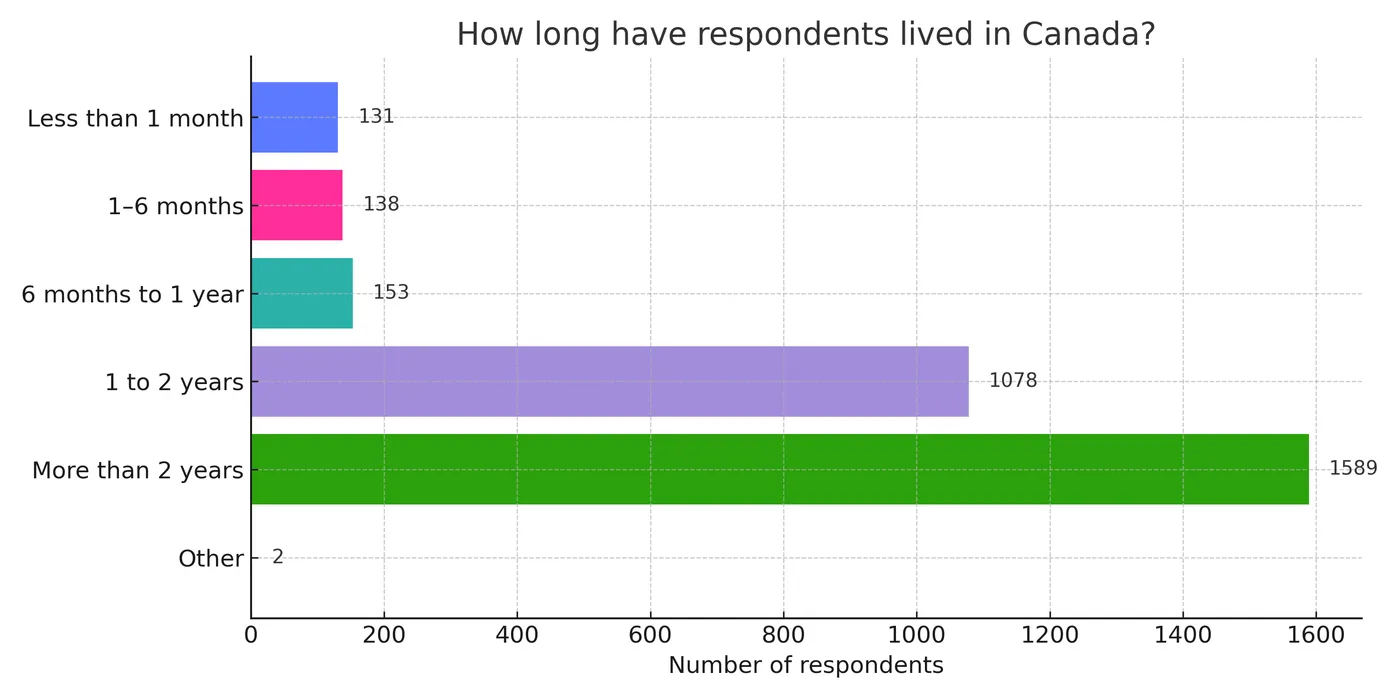
CUIAS Survey Results
How Ukrainians Are Adapting in Canada and What Their Future Plans Look Like
CUAET
CUIAS Survey Results: How Ukrainians Are Adapting in Canada and What Their Future Plans Look Like
In April–May 2025, CUIAS Immigrant Services conducted an online survey among Ukrainians who arrived in Canada under the CUAET program.
While this survey was open to all and not a scientifically representative study, over 3,000 respondents provided valuable insights into the current mindset, needs, and direction of the Ukrainian community in Canada.
We are sincerely grateful to everyone who shared their experiences. Below are the key findings and our observations.

What this tells us: ✅ Most respondents have been in Canada long enough to complete the initial stages of settlement ✅ The majority are no longer “newcomers,” making their answers more reflective and informed ✅ At the same time, 14% are still in early stages of integration and may need additional support
What this tells us: ✅ A strong majority are actively building a future in Canada ✅ A small number left, possibly due to personal or systemic challenges ✅ The overall community appears to be stabilizing
(Respondents selected up to 3 main reasons)
What this tells us: ✅ Socioeconomic factors like housing, employment, and legal status are key in deciding to leave ✅ Affordable housing remains a particularly urgent issue ✅ Access to permanent residency significantly impacts long-term decisions
(Main motivations, top 3 selected)
What this tells us: ✅ Safety and long-term stability are top motivators for remaining in Canada ✅ The goal of obtaining permanent residency is central to most people’s future plans ✅ Education and jobs matter, though they are secondary to safety
Our hypothesis: The Ukrainian community sees its future in Canada — not in returning to Ukraine or relocating elsewhere.
What this tells us: ✅ Two-thirds are either planning or have already taken steps toward permanent residency ✅ Very few respondents are not interested in applying ✅ This confirms strong long-term intentions to remain in Canada
What this tells us: ✅ 82% have either adapted or are actively adapting ✅ Only 15% face significant challenges ✅ This shows a solid level of integration within Canadian society ✅ Still, many individuals require targeted support to overcome barriers
Our hypothesis: Continued support for both new and mid-stage newcomers is essential to prevent social isolation and ensure sustainable integration.
✅ The Ukrainian community in Canada largely sees this country as their long-term home ✅ Major challenges include housing, employment, and pathways to permanent residency ✅ Most respondents are adjusting well, though targeted help is still needed ✅ Safety, stability, and a future for their families are primary reasons for staying
In this context, it is vital to maintain and expand access to settlement services for CUAET participants — including support with documentation and applications, tax filing assistance, mental health support, and advanced English language training. These continue to be key factors in successful integration.
CUIAS Immigrant Services remains committed to supporting every Ukrainian on their path forward in Canada.